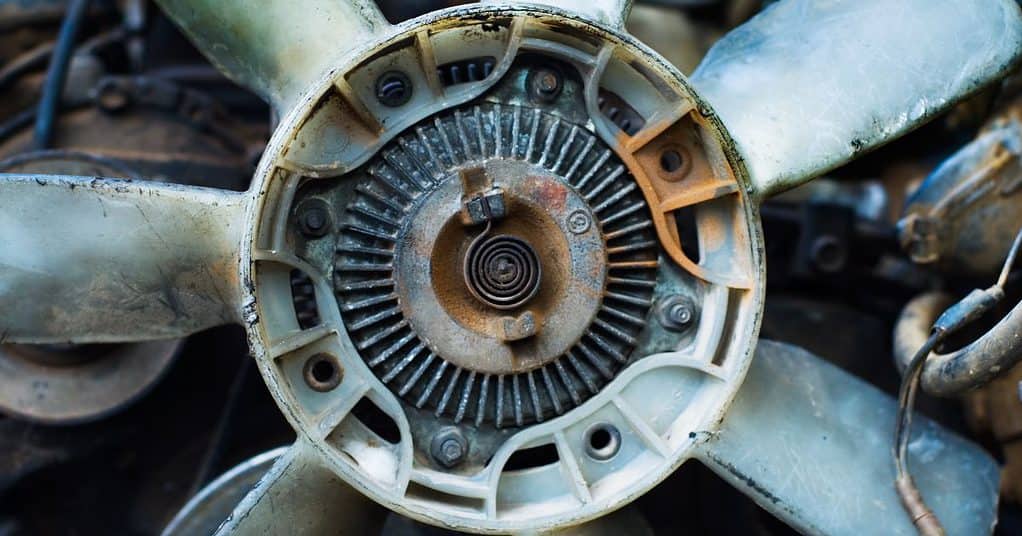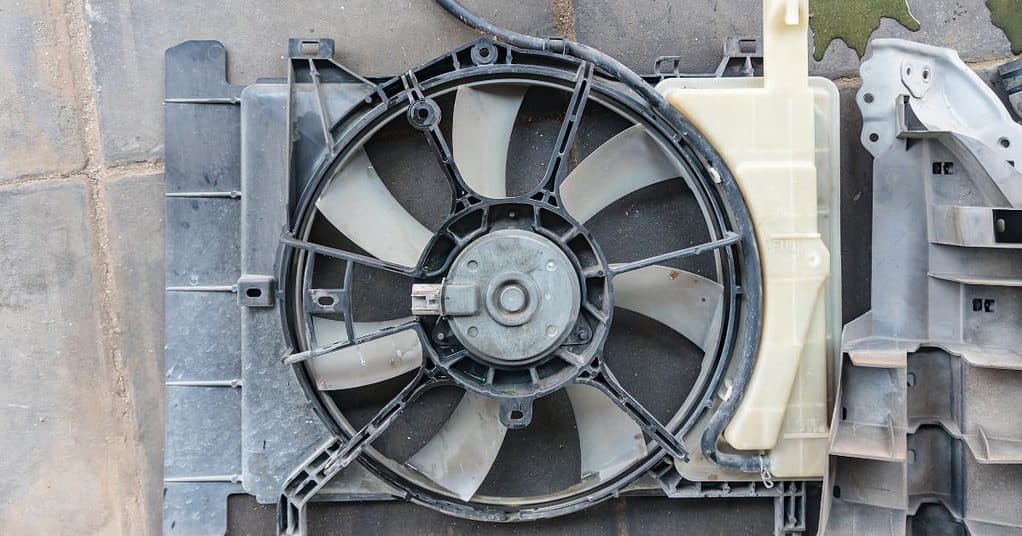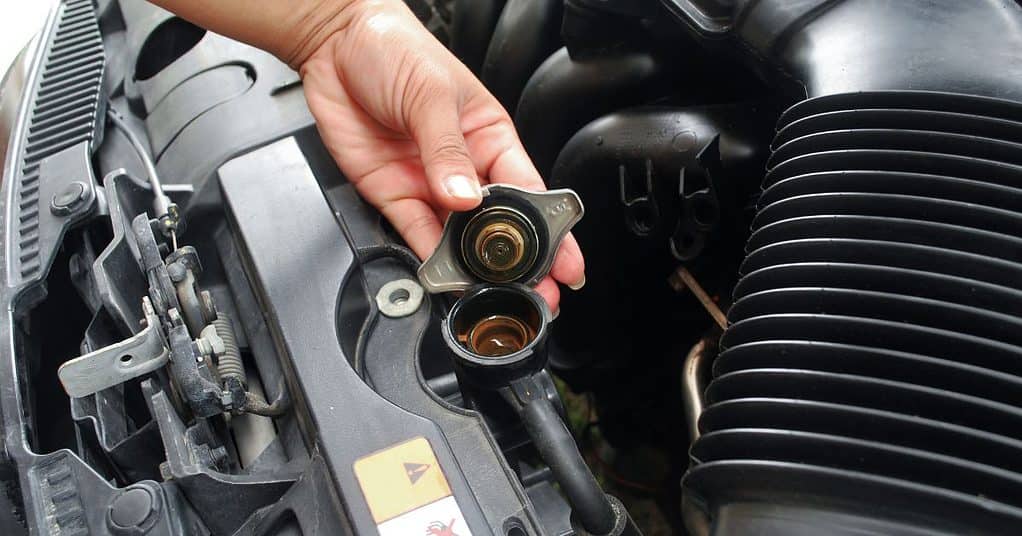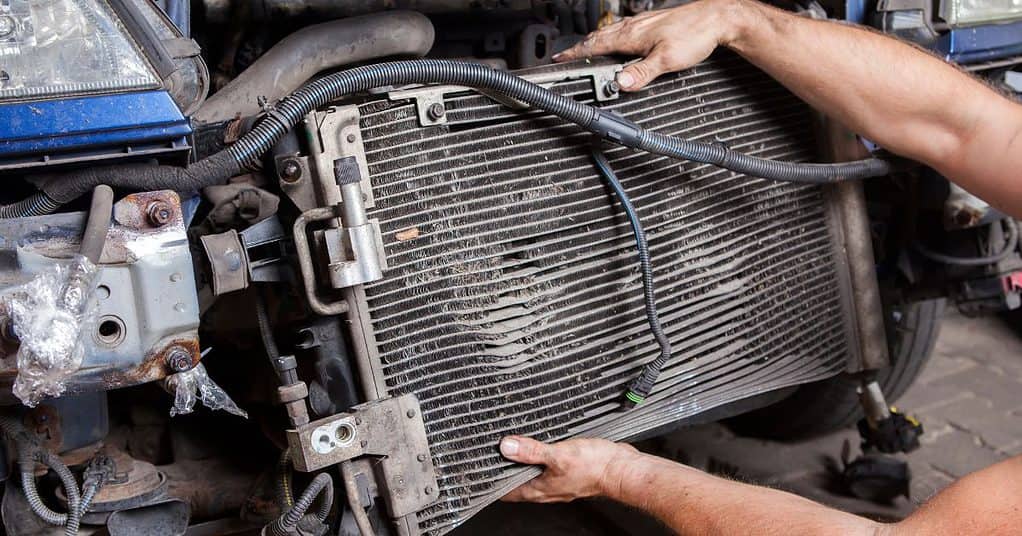Fan still running when car is off: What to do?
Your car’s radiator fan is an essential part of your engine’s cooling system, but what should you do when the fan doesn’t turn off?

It’s completely normal for your car fan to run for a few minutes after the engine is turned off, as it’s designed to do so. However, if it runs for longer, you may have low coolant levels, a coolant leak, a faulty cooling fan, a damaged radiator, or an overheated engine.
After extensively researching automotive maintenance, I have gathered enough information to determine why a car fan may fail to turn off. In this article, we’ll be taking a closer look at how you can troubleshoot a car fan that doesn’t shut itself off to ensure that your vehicle’s cooling system is stable and responsive.
What Does a Car Fan Do?
A fundamental component of your engine’s cooling system is the radiator/engine fan. Your car’s fan is positioned between the radiator and the engine, pulling air through the grill to assist the cooling process.
While the coolant in the radiator is essential for maintaining stable temperatures, the fan assists this process by circulating air. The fan is particularly useful at preventing overheating when the car is not moving or when it’s driving at slower speeds, given that the vehicle is not driving fast enough to force air in through the grill by itself.

Why is My Car Fan Not Turning Off?
A common problem that many people experience is their car’s fan not turning off. This can be linked to a number of mechanical issues, some of which are harder to fix than others.
However, before you start troubleshooting your car’s engine fan, it’s important to understand that the fan is actually supposed to stay on for a short period after the vehicle is turned off. After you finish driving, the car’s engine is still excessively hot and the fan is designed to continue to cool it down even after the engine has been shut down.
This is a completely normal part of your car’s design and it ensures that your engine cools down faster after being used. The fan should continue to run for a few minutes before turning itself off.
With that said, if the fan does not turn off after a few minutes, then there may be a more serious mechanical problem with your vehicle. Troubleshooting a faulty engine fan requires diagnosing the issue further so that you can pinpoint exactly what’s causing the problem. Consider the following possibilities when troubleshooting a car fan that won’t turn off.
Low Coolant Level
The most likely reason that your car fan is not turning off is that it’s low on coolant. Your radiator uses a mixture of water and coolant to stabilize the temperature of your engine.

This coolant mixture is the primary reason that your engine does not overheat when you drive for long periods and in extreme heat. If your vehicle has low coolant levels, then your car’s fan will be working overtime to try to cool down the engine.
The fan is generally there to facilitate air which assists the cooling process of the engine, but if there is a lack of coolant, there may be more pressure on your fan to do most of the work. Provided that you are simply low on coolant without any further mechanical issues, simply adding more coolant should fix the problem.
Coolant Leak
If the coolant levels in your vehicle are low, especially if they have been recently topped up, then there is a good chance that there’s a coolant leak. When your car leaks coolant, it essentially triggers the same response from the radiator fan to continue stabilizing the temperature of the engine.
The leak is most likely associated with the water pump or with some of the hoses connected to it. You may be able to spot noticeable signs of the coolant leak by popping open your hood and looking for any water dripping around the water pump or radiator.
If you see a leak, then you will know it’s causing the fan to run longer than it’s supposed to. Fixing the leak will require tracking down its source and replacing the component that causes it to drip.
Faulty Cooling Fan
Much like the rest of the components in your vehicle, the fan is also subject to wear and tear. The reason behind the fan not turning off may be that it’s simply faulty or damaged, which will require replacing the component in most cases.
If the fan is not working properly, it may continue to run for longer periods after the engine is shut down. This is likely due to an electrical issue or a broken fan blade.
Alternatively, the problem could be connected to the cooling fan relay and not the fan itself. The relay sends power to the fan so that it can cool down the engine. If the relay is faulty, it can underpower or overpower the fan.
Damaged Radiator
One of the worst-case scenarios in this situation is a damaged radiator. The radiator is one of your engine’s most important components, given that it’s responsible for maintaining the cooling system.
What’s most likely to happen is that the radiator cracks resulting in a coolant leak. A cracked radiator will leak out coolant that stabilizes the temperature of the engine, forcing the fan to stay on longer to compensate.

This is a very serious repair, that will likely require professional installation and further diagnostics.
Overheated Engine
An overheated engine is often caused by a coolant leak or low coolant level, causing the fan to work longer to cool down the engine.
However, an overheating engine can be attributed to many mechanical issues, which will require professional diagnostics.
How Much Does it Cost to Fix a Car Fan?
In general, if the problem is directly connected to the fan itself, you should expect to pay anywhere from $550 to $650 to replace the fan. The bulk of the costs will go to labor, so if you are adept with auto mechanics, you can save a lot on your installation.
For simple repairs such as adding more coolant to your vehicle, this could cost as little as $15 for an entire gallon of coolant. However, if the repairs are serious and you need to replace essential engine components such as the radiator, this may cost as much as $1,000 to $3,500.
Key Takeaways
- A car fan is designed to run for a few minutes after the engine is turned off.
- If the fan runs longer than a few minutes, you may have low coolant levels, a coolant leak, a faulty cooling fan, a damaged radiator, or an overheated engine.
- Replacing a car fan generally costs around $550 to $650.
